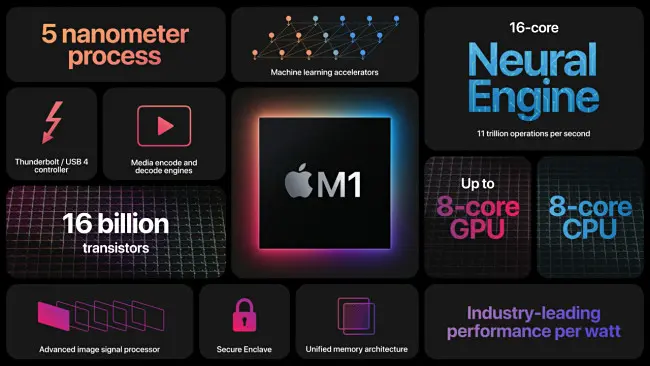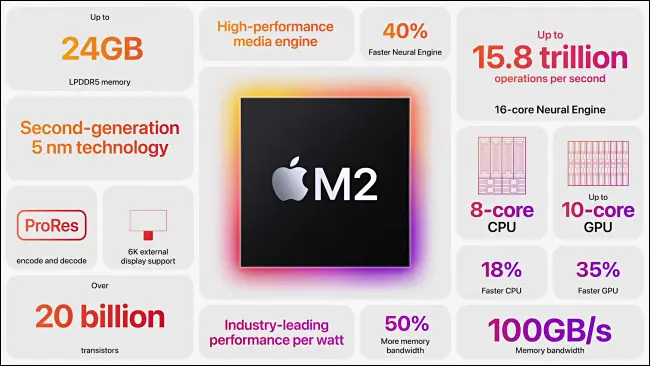Apple M1 vs M2: A Comprehensive Look at Apple's Next-Gen Chip
Written on
Introduction to Apple Silicon
The latest generation of Apple Silicon has arrived with the introduction of the M2 chip, an upgrade to the original M1 launched in 2020. In this section, we will explore how these two processors stack up against each other and what this means for the future of Apple's Mac lineup.
Understanding Apple Silicon
Apple's M series of processors signifies a strategic shift away from Intel-based architecture, opting instead for ARM technology, similar to that used in their iPhone and iPad devices. Notably, the M1 chip has also been integrated into certain iPad models.

Image courtesy of the author
Apple first unveiled its Silicon chips for Macs in November 2020 with the M1. The following year saw the introduction of the more powerful M1 Pro and M1 Max chips. In March 2022, the M1 Ultra was launched, merging two M1 Max chips into a single powerhouse used in the Mac Studio. During the pivotal WWDC event in June 2022, Apple introduced the M2 processor, aimed at enhancing performance for lower to mid-range Mac models, while the M1 Pro, M1 Max, and M1 Ultra remain as options for professional users. As the M1 machines continue to be available, potential buyers face a choice: Should they opt for an M1 Mac or wait for the upgraded M2 version? Let’s dive into the distinctions between these two processors.
M1: The Pioneer of Apple Silicon
The M1 chip marked the beginning of Apple's venture into Silicon, debuting in November 2020. It integrates both CPU and GPU cores, offering superior performance compared to many Intel-based Macs. The M1 also features neural engine cores for enhanced machine learning, Secure Enclave for security, and media encoders and decoders, alongside a Thunderbolt 4 controller. As of June 2022, the M1 chip powers various models, including the MacBook Air, MacBook Pro, Mac Mini, iMac (24-inch), and both sizes of the iPad Pro.

Image courtesy of Apple
While the M2 is set to replace the M1, the latter still represents a significant upgrade for many users transitioning from Intel-based Macs. The M1 machines deliver impressive performance and compatibility with iPhone and iPad applications. Consequently, if M1 prices decrease as M2 models become available, it could be an excellent opportunity for newcomers to Apple Silicon or families seeking a Mac.
M2: Advancing Apple’s Silicon Lineup
The M2 chip, introduced in June 2022, is the fifth addition to Apple’s Silicon family. Similar to its predecessor, it combines CPU and GPU on a single die, sharing memory for improved performance compared to systems with separate chips. Apple claims the M2 features an 18% faster CPU, a 35% more powerful GPU, 50% increased memory bandwidth, and a 40% faster Neural Engine than the M1. It also includes ProRes media encoding, beneficial for creative professionals. Initially, the M2 chip was announced for the MacBook Air and 13-inch MacBook Pro, with further expansions anticipated in future devices.

Image courtesy of Apple — WWDC 2022
When compared to Apple’s more powerful chips like the M1 Pro, M1 Max, and M1 Ultra, the M2 delivers solid performance while maintaining low power consumption and heat output, making it ideal for compact models like the MacBook Air and 13-inch MacBook Pro.
Ultimately, we recommend investing in the most powerful Mac that aligns with your needs and budget. However, those looking to save may still find excellent value in M1 Macs, which offer remarkable technology for the cost. It’s undeniably a great time to be part of the Apple ecosystem.

Image courtesy of the author
Video Comparisons
To further explore the differences between the M1 and M2 chips, check out these in-depth video comparisons.
M1 vs M2 vs M3 MacBook Air - ULTIMATE Comparison!
This video offers a detailed analysis comparing the M1, M2, and M3 MacBook Air models, highlighting performance metrics and real-world usage scenarios.
M1 vs M2 MacBook Pro - ULTIMATE COMPARISON!
In this video, we dive deep into the differences between the M1 and M2 MacBook Pro, examining features, benchmarks, and overall user experience.
We hope you found this article informative! If you enjoyed it, feel free to explore more of my posts. I write whenever inspiration strikes and I need to share my thoughts. Please like and follow to stay updated with new content. What are your thoughts on the M1 vs M2 debate? Let's discuss in the comments!